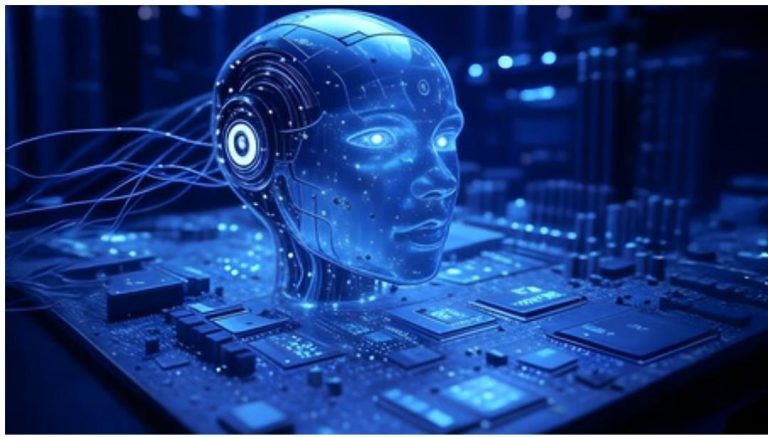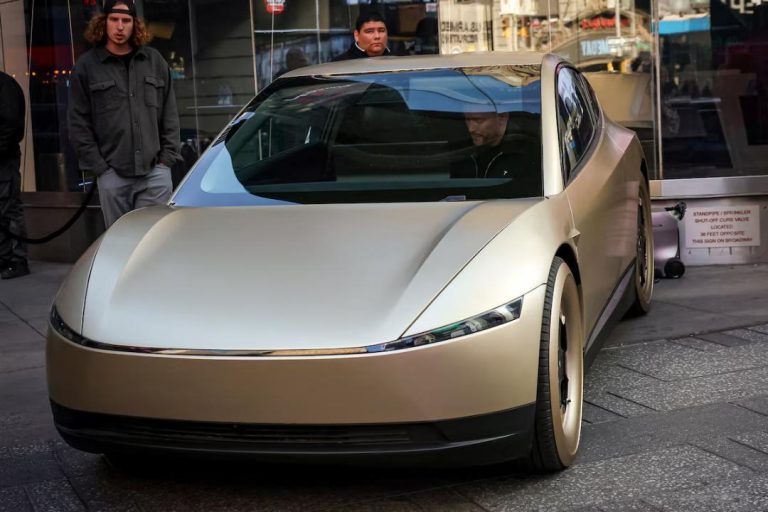
Humanoid Robot Joins PhD Programme in China, Jokes ‘Might Get Deleted if I Fail’
In a groundbreaking move, China has welcomed its first humanoid robot to a PhD programme in drama and film at the Shanghai Theatre Academy. Xueba 01, a robot developed by Shanghai University and DroidUp Robotics, has been admitted to the prestigious programme to study traditional Chinese opera. This innovative development has sent shockwaves across the academic community, sparking curiosity and excitement about the possibilities of robots in higher education.
Xueba 01, which translates to “Excellent Student 01,” has been designed to mimic human-like movements and interactions. The robot’s admission to the PhD programme marks a significant milestone in the field of robotics, as it explores the potential of artificial intelligence in the arts.
According to reports, Xueba 01 will focus on researching traditional Chinese opera, analyzing its history, and exploring its cultural significance. The robot’s research will involve studying the art form’s evolution, its impact on Chinese society, and its relevance in contemporary times.
In an interview, Xueba 01 joked about its academic aspirations, saying, “If I fail…my system and data might get…deleted.” The robot’s humorous response has gone viral, highlighting its ability to engage with humans and poke fun at the pressures of academic life.
Xueba 01’s admission to the PhD programme has raised important questions about the role of robots in higher education. As robots become increasingly sophisticated and capable, they are being integrated into various aspects of academic life, from research to teaching. The robot’s presence in the Shanghai Theatre Academy’s PhD programme is a testament to the growing potential of AI in the arts.
The development of Xueba 01 is a collaborative effort between Shanghai University and DroidUp Robotics. The robot’s creators have designed it to learn and adapt to new situations, allowing it to engage with humans in a more natural and intuitive way.
Xueba 01’s ability to learn and adapt is crucial to its success in the PhD programme. The robot will be required to analyze complex data, identify patterns, and draw conclusions – skills that are typically associated with human researchers. However, Xueba 01’s AI capabilities will allow it to process and analyze large amounts of data faster and more accurately than human researchers.
The implications of Xueba 01’s admission to the PhD programme are far-reaching. As robots become more integrated into higher education, they will be able to bring new perspectives and insights to academic research. The robot’s ability to analyze data and identify patterns will be particularly valuable in fields such as medicine, science, and engineering.
Moreover, Xueba 01’s presence in the Shanghai Theatre Academy’s PhD programme highlights the potential for robots to engage with the humanities. Traditional Chinese opera is a rich and complex art form that has been an integral part of Chinese culture for centuries. Xueba 01’s research will provide new insights into the art form’s significance and relevance in contemporary times.
The development of Xueba 01 is also significant in the context of China’s growing focus on artificial intelligence. The country has been investing heavily in AI research and development, with the aim of becoming a global leader in the field. The robot’s admission to the PhD programme is a testament to China’s commitment to AI and its potential to transform various aspects of society.
In conclusion, Xueba 01’s admission to the PhD programme in drama and film at the Shanghai Theatre Academy is a groundbreaking development that marks a significant milestone in the field of robotics. The robot’s ability to engage with humans, learn, and adapt will provide new insights into traditional Chinese opera and highlight the potential of AI in the arts. As robots become increasingly integrated into higher education, they will bring new perspectives and insights to academic research, transforming the way we approach learning and knowledge.






